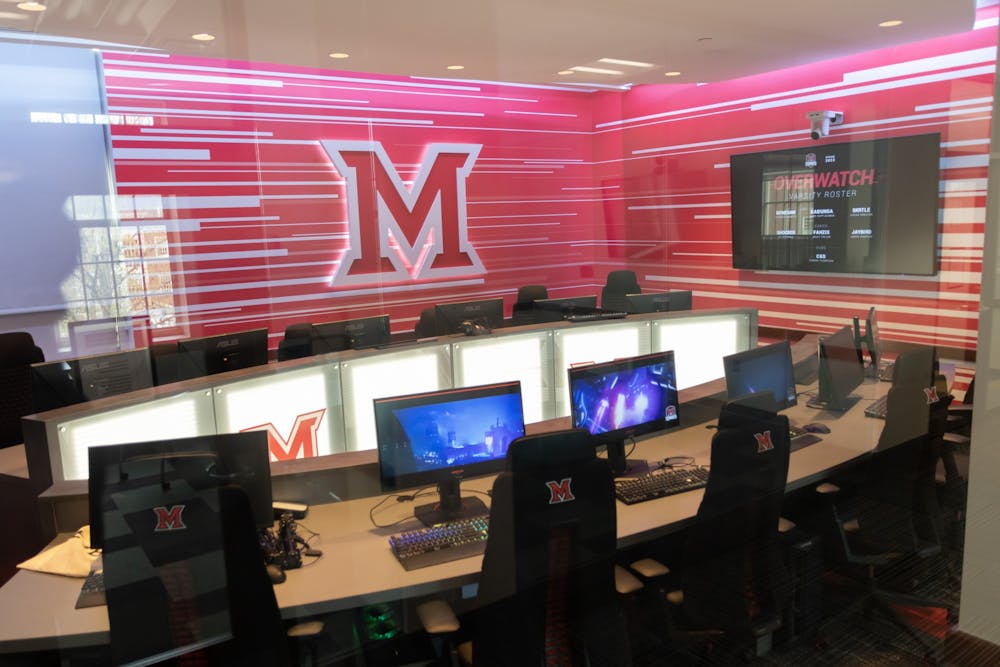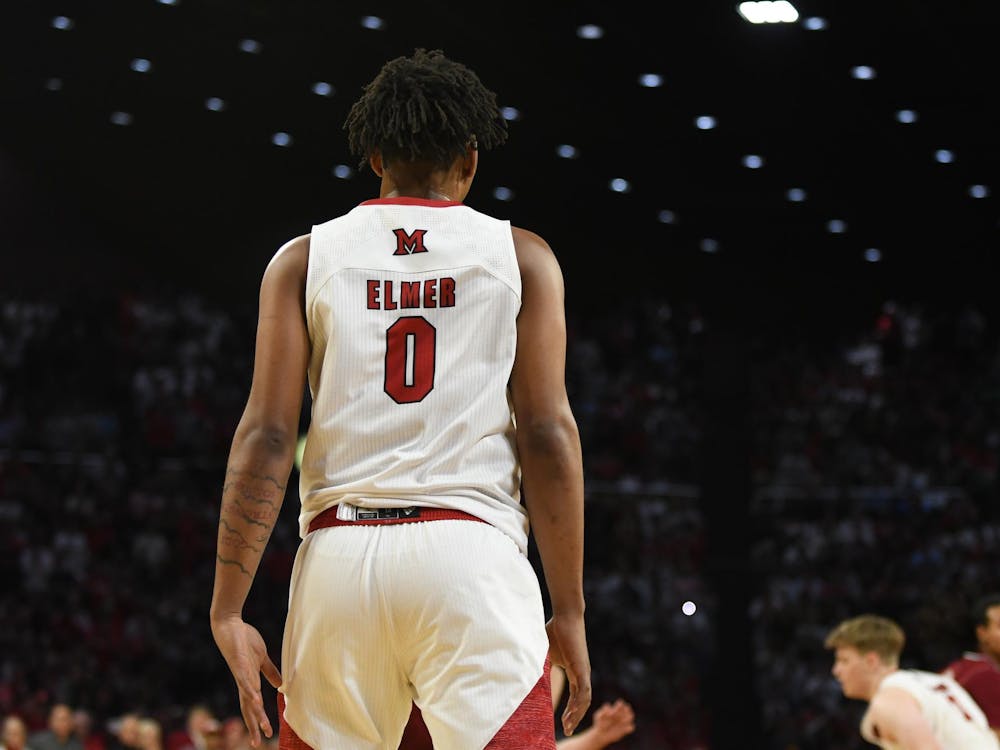This March, Best Colleges named Miami University’s varsity esports program the best of its kind in the country.
The program was founded in 2016, starting with three teams. It has since grown to eight varsity teams across eight games. The team has won statewide competitions, and in 2017, placed first in the National Association of Collegiate Esports “Overwatch” season.
The key to the growth and success of Miami’s esports team lies in its backline student volunteers, a team called the Forge. The Forge is made up of more than 20 students split into six divisions that focus on developing the brand of the esports team. In 2020, the Forge was composed of just three students who kept the esports team alive through the COVID-19 pandemic.
“The graphics and the social media aspect of all that were basically what legitimized us as a program through that tough time,” said James Davis, the team’s assistant director. “Without the Forge, we’d be a loose collection of teams without a strong through line.”
The Forge keeps students involved with the esports world while also giving them real-world experience and opportunities to network in the esports space. Students are able to build their professional skills and portfolio to help them enter the fast growing esports field.
“It’s led me towards what I want to do in life,” said Kanayo Offodile, head of media production in the Forge. “Coming into college, I wanted to be a game designer, and then I flipped it because I realized I didn’t like coding, but being in media production, I realized I can use my passion and skill set in esports, and the Forge gave me the ability to connect and network with people in the field.”
During his junior year, Offodile began working in the media production division. He traveled with the esports team to different tournaments, developing his photography and videography skills. Since then, he’s become the head of media production and co-founded the program’s NBA 2K team.
As part of the media production division, Offodile works closely with the social media and graphic design divisions, providing them with photos and videos. The Forge facilitates this interconnectivity by having weekly meetings to communicate tasks for the upcoming week.
Zach Roberson, the team’s project manager, oversees each division within the Forge. Roberson has almost six years of experience on the team, from being a player for the varsity “Valorant” team to working on various divisions within the Forge. Roberson was one of the first Forge members and has made an impact on the program’s social media, sponsorship and broadcasting.
“My professional experience through the Forge has allowed me to get an internship and grow and build my resume,” said Roberson. “There’s so many opportunities that have been provided by the esports program overall and I’ve been extremely fortunate to reap the benefits.”
The broadcasting team has gone from a few broadcasts a year to more than 100 in the past year. Davis credits this growth to having access to more resources. The broadcast team started with only one computer and now has access to three computers and professional camera and audio equipment that rival those of professional broadcasts.
Many students involved with the Forge also use their skills in the classroom in the Games and Simulation and Emerging Technology in Business Design programs. Miami’s Games and Simulation program has been recognized as one of the top 10 public college programs, according to the latest national study conducted by Princeton Review. The program was also named 27th overall in the nation among both public and private universities.
Enjoy what you're reading?
Signup for our newsletter
“A lot of the schools that have really competitive esports teams don’t really have a game program, so it gives us an academic hook,” said Glenn Platt, the co-director of the team. “The fact that we have a game program gives us a lot of credibility. One of our professors, Phill Alexander, wrote the book ‘Esports for Dummies.’”
The esports program still has a high ceiling for growth. Alongside three PC-focused arenas in King Library and the Armstrong Student Center, a fourth arena will soon break ground on Miami’s campus, with a focus on console games. The Forge has gained a solid footing over the past few years, and with access to more resources, it should continue being highly successful.
“In the past, we were just trying to figure out how to do everything,” Platt said. “Moving forward, [we are] going to be able to be more strategic and intentional.”




